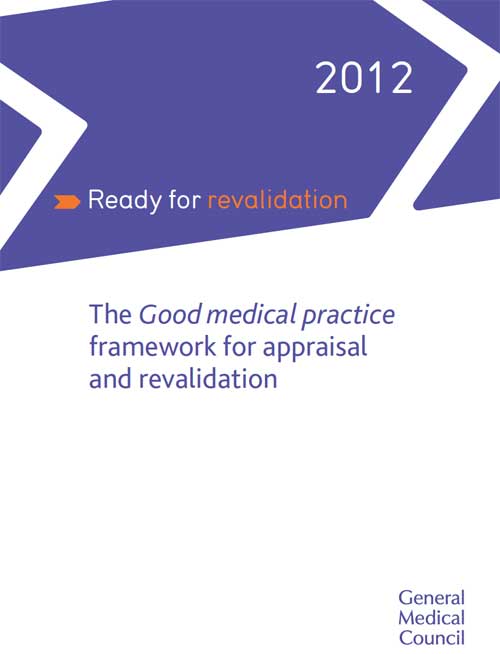CPD is one of the "inputs" to achieving improvements in the safety and quality of care provided for patients and the public. The GMC is not concerned with the details of CPD, only in the assessment of doctors as "fit to practice"; the responsibility for being "fit to practice" lies with the individual doctor. Revalidation is the regulatory assurance of this and revalidation requires a doctor to show that s/he is up-to-date and fit to practice. The individual practitioner needs to remain up-to-date in "all areas of their practice". The content of a practitioner’s CPD should form the basis of their PDP and this will consist of internal, external and personal CPD sessions.
The assessment of CPD is problematic but one useful model is for the practitioner to write a reflective account, for example, formulating a service improvement which might be challenged through an audit cycle. The GMC will require documented proof of CPD as an essential component of the information needed for successful appraisal and revalidation.
The purpose of revalidation is to assure patients, the public, employers and other healthcare professionals that licensed doctors are up to date and fit to practice. Effective CPD schemes are flexible and largely based on self-evaluation. This lets doctors develop what they do in the context of their individual professional practice, whilst providing documetary evidence for external scrutiny.
A ny CPD system must take a holistic view of health professionals' learning, with opportunities stretching from the classroom to the point of care. It shifts control of learning to the participant and has the flexibility to adapt to the needs of individual clinicians, enabling them to be the architects of their own learning. If co-ordinated nationally, and across the health professions, a CPD system offers the promise of:
ny CPD system must take a holistic view of health professionals' learning, with opportunities stretching from the classroom to the point of care. It shifts control of learning to the participant and has the flexibility to adapt to the needs of individual clinicians, enabling them to be the architects of their own learning. If co-ordinated nationally, and across the health professions, a CPD system offers the promise of:
- advancing evidence-based, inter-professional, team-based learning
- engendering coordination and collaboration among the professions
- providing higher quality for a given amount of resources
- leading to improvements in patient health and safety
CPD is intrinsically linked to appraisal and revalidation. Clinicians should be aware of "The Good Medical Practice Framework for Appraisal and Revalidation", published by the General Medical Council (GMC), which they should use to:
- reflect on their practice and their approach to medicine
- reflect on the supporting information they have gathered
- reflect on what that information demonstrates about their practice
- identify areas of practice where they could make improvements or undertake further development
- demonstrate they are up-to-date and fit to practice
Download a PDF of this framework document
The Royal Colleges, together with the Federation of Surgical Specialty Associations, have produced a general CPD Summary Guide for Surgery. They also offer an on-line portfolio to record CPD activities with which to inform the annual appraisal process and to set the next year’s PDP. It is linked to an e-logbook for recording operative procedures.
CPD Summary Guide for Surgery